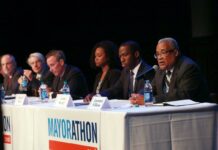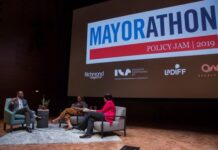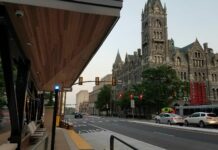Richmond had an eviction crisis before COVID-19 and the pandemic has only exacerbated the problem. To put the looming catastrophe in perspective, consider the following: during July 2020, landlords were awarded an average of $1,787 in each unlawful detainer case. At the time of this writing, there were over 1,200 unlawful detainer cases scheduled to be heard in September. Assuming the average judgment remains roughly the same, this amounts to a total of over $2 million in unpaid rent in September. Not every household facing eviction participates or is eligible for the EDP, nor do they necessarily receive the full 50% of back rent the EDP provides; however, these numbers are illustrative nonetheless. The FY2021 budget allocates $485,000 to the EDP for the entire year. Those funds will be exhausted in roughly two weeks given the current numbers.
Will federal and state programs cover this gap? If not, how will you adequately fund this essential program? What additional solutions do you propose to address the coming wave of evictions?
First we must request that the state do their part by increasing funding to the EDP. There has to be a strengthening of the Tenant/Landlord relationship that can lead to amicable negotiations that will satisfy both parties. There has to be a plan enacted to satisfy these landlords while allowing the tenants to stay put and work on improving their station in life through education and quality employment.
One of the most rudimentary functions of local government is to provide residents with adequate public facilities. Yet, despite paying the highest property tax rate in the region, flooding is routine on the Southside, in Brookland Park, and across the city. Backyards are falling into eroded and unmaintained alleys in the West End. Where sidewalks do exist, they are often inaccessible to people with mobility challenges. How will you make sure these basic and essential services are fulfilled by City Hall? What will you do differently?
The problem is to a certain degree one of administration of existing funds. To the extent that it is, I will push on the city council for transparency and efficiency in that administration. To a larger degree, the problem is one of underfunding in comparison to the needs at hand, which is what also needs to change.
What kind of policy would you seek to help maintain Richmond’s economic and racial diversity? Are there existing programs that are underutilized, for example the Real Estate Tax Relief Program, that could be leveraged more effectively? Would you support a longtime owner occupant program similar to Philadelphia’s?
First and foremost needs to be improvements in our educational system that would qualify people for family supportive waged employment. There also has to be education on how to maintain a home. I believe that there are programs that need to be repurposed, such as the Tax Abatement program. The savings from this program should be put into a fund that will assist long term and low income homeowners to remain in their homes without fear of being taxed out of their residences. Philadelphia’s LOOP program has some great tenets that definitely can be used here to help people offset rising property taxes.
Richmond was denser in 1950 than it is today. Increased density cuts housing costs for residents, preserves the City's limited greenspace, and saves the City money on providing essential services. What changes, either administratively or via ordinance, can the City make to help create dense residential development? What steps can Richmond take to entice, encourage, and facilitate additional residential development? How do we ensure a diversity of housing stock that is accessible to Richmonders at all income levels?
First, do no harm. We can begin by legalizing the construction of affordable housing, with the recognition in mind that housing will not be affordable until there is enough of it. I support the Richmond 300 Draft Plan with regard to housing, and further legalizing the construction of ‘missing middle’ housing throughout the city.
While the City of Richmond and the Richmond Redevelopment & Housing Authority (RRHA) are subject to federal regulations and budget allocations, there is nothing preventing the full engagement and partnership between these governing bodies and the residents they serve. Unfortunately, the history of public housing in Richmond is a history of distrust, betrayal, and silencing of public housing residents themselves. Like many cities across the nation, Richmond intentionally built highways to segregate and isolate public housing from the rest of the city, effectively preventing its residents from participation in the city's prosperity. Richmond used Urban Renewal to demolish public housing units without a one-to-one unit replacement which resulted in the physical and emotional destruction of public housing neighborhoods. While this is the history of Richmond's public housing, there is nothing that mandates that it also be the future. If elected, how will you work with public housing residents? How will you ensure that residents get to decide their own collective futures rather than having a government entity decide what is best for them?
I am a housing affordability/fair housing advocate that is already working with public housing residents to improve their station in life. There has to be more resident participation on the board of RRHA, with actual authority to make decisions on behalf of themselves and their neighbors. I will constantly advocate for them having a bigger voice in the decision making process that actually affects their lives.







